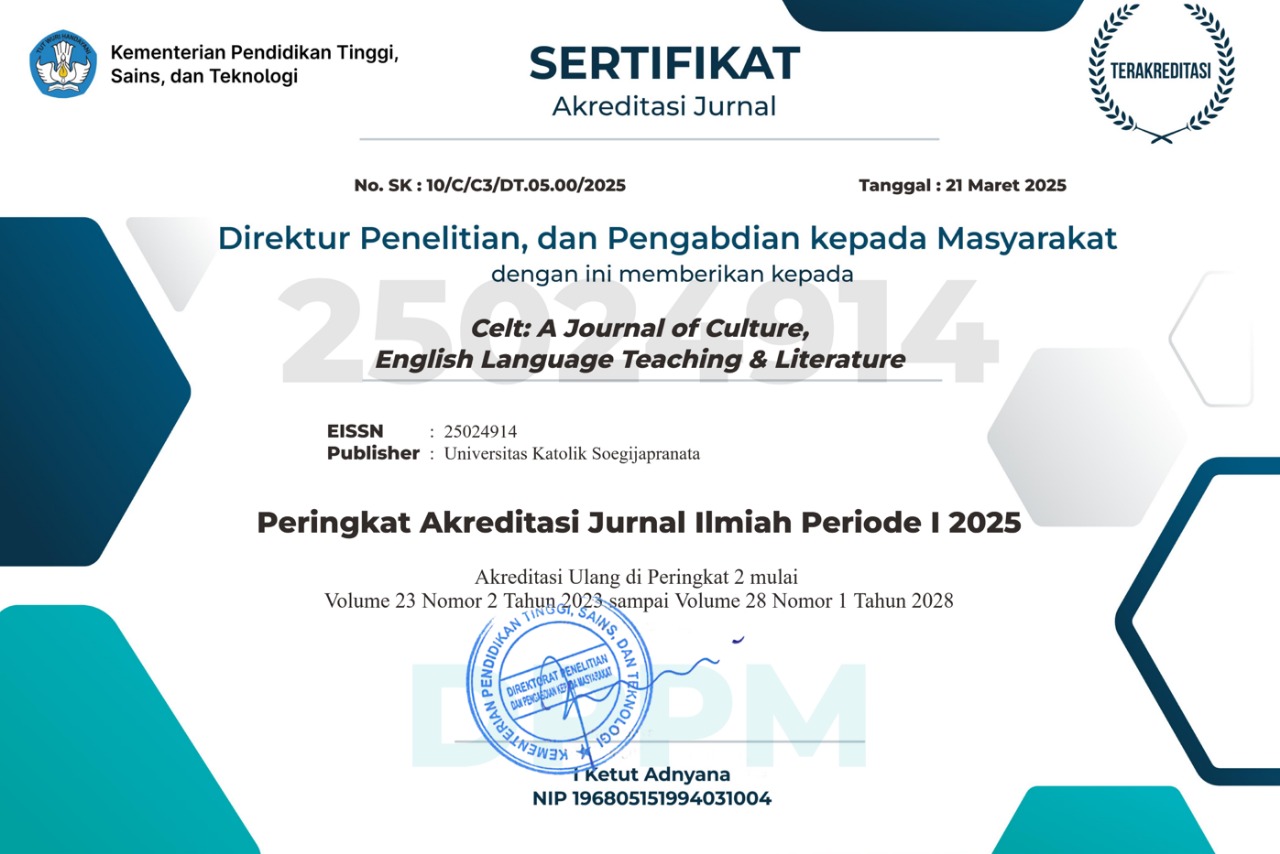DESIGNING A SYLLABUS FORA COURSE OF ENGLISH FOR SECRETARY BASED ON INTERVIEWS WITH PROFESSIONAL SECRETARIES: A CASE STUDY
Abstract
Many profit and non-profit organizations seekfor professional
secretaries because of the central role the profession holds. A
secretary is an assistant to her employer, and oftentimes she
becomes not only lithe hands" but also lithe eyes" of her employer, indicating the wide range of work a secretary carries out. Despite of the heavy workload of the profession. there are still many female undergraduates who do not hesitant to begin or make a career as a secretary. Perhaps that is because basically the job requires administrative skills, which can be simply acquired through a lot of practices. Responding to the phenomenon, universities that run English Department have offered an English for Secretary (hereinafter referred to as EFS) course. Unfortunately, to date there have not been many books on EFS available in Indonesia. As a result, EFS teachershave to create the syllabus and prepare the materials themselves or use the old version of any EFS book available.Factually, the EFS syllabus should be created based on an actual and careful needs analysis so that the students taking the course would enjoy maximum benefit. This article focuses on designing a syllabus based on interviews with professional secretaries. Hence this article will discuss the importance of needs analysis, the structured interviews, the result of the interviews, and the proposed syllabus. There were 20 professional secretaries intervieweed about the secretarial job description, skills, and behaviour and attitudes. The result is hitherto a secretary stillgoes to the folloWing routine: handling callers, corresponding, filling, organizing meeting, and scheduling, which are relevant to the essential skills such as communication, computer and language skills; and pertinent to the behavior and attitudes a secretary should have: reliability, fast working, honesty, and autonomous learning. Thus, the planned EFS syllabus will accommodate what the interviewees have noted.
Keywords
Full Text:
download PDFReferences
Dovey, Teresa. "What Purposes, Specifically? Re-thinking Purposes and Specificity in the Context of the 'New Vocationalism. I" In Englishfor SpecijicPurposes. Vol. 25, 2006: 387-402.
Dudley-Evans, Tony and Maggie Jo St John. Developments in ESP: A Multidisciplinary Approach. Cambridge: Cambridge University Press, 1998.
Flowerdew, J. and M. Peacock. "The EAP Curriculum: Issues, Methods and Challenges." In Research Perspectives on English for Academic Purposes. Eds. John Flowerdew and Matthew Peacock. Cambridge: Cambridge University Press, 2001.
Hutchinson, Tom and Alan Waters. English for Specific Purpose: A Learning Centered Approach. Cambridge: Cambridge University Press, 1987.
Jordan, R. R. Englishfor Academic Purposes: A Guide and Resource Book for Teachers. Cambridge: Cambridge University Press, 1997.
Robinson, Pauline C. (a). ESP: The Present Position. Oxford: PergamonPress, 1980.
-------(b, )ESP Today: A Practitioner's Guide. Hertfordshire:
Prentice Hall, 1991.
Widdowson, H. G. Learning Purpose and Language Use. Oxford: Oxford University Press, 1983.
Widdowson, H. G. Defining Issues in English Language Teaching. Oxford: Oxford University, Press, 2003.
-------(b, )ESP Today: A Practitioner's Guide. Hertfordshire:
Prentice Hall, 1991.
Widdowson, H. G. Learning Purpose and Language Use. Oxford: Oxford University Press, 1983.
Widdowson, H. G. Defining Issues in English Language Teaching. Oxford: Oxford University, Press, 2003.
DOI: https://doi.org/10.24167/celt.v10i1.124
Copyright (c)
| pISSN (print): 1412-3320 | eISSN (online): 2502-4914 |











